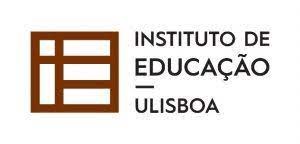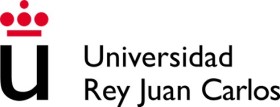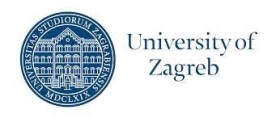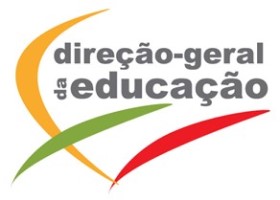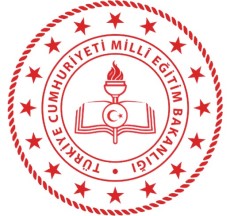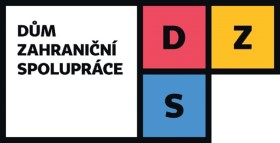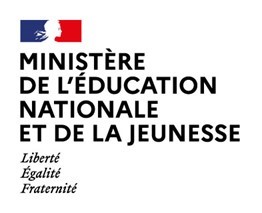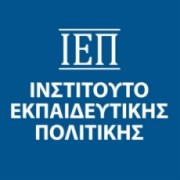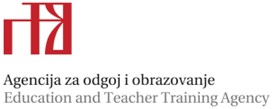This website use cookies to ensure you get the best experience on our website

Core Project Partners
The project includes 8 core partners in the consortium consisting of three universities acting as ITE providers:
University of Zagreb (Croatia), University of Lisbon, Portugal, Universidad Rey Juan Carlos I in Madrid (Spain).
Two national ministries of education acting as national CPD providers from Croatia and Spain, as well as a regional department of education and a regional training centre acting as regional CPD providers (Portugal).
The 8th member of the consortium is European Schoolnet which acts as the coordinator and as a European CPD provider.

Associate Projects Partners
The core consortium is further strengthened by associate partners supporting the work in the core partner countries, and also expanding the geographical reach of the project. Associate partners include:
The Croatian Education and Teacher Training Agency, and the Danish National Knowledge Centre for e-learning at Aarhus Business College, as well as six Ministries of Education from Portugal, the Czech Republic, Hungary, France, Greece, and Turkey.
Learn more about our Project Partners
The ContinueUP project partners will be coordinated by EUN Partnership aisbl (EUN or European Schoolnet), a consortium of 33 Ministries of Education created in 1997 to bring about innovation in teaching and learning to Ministries of Education, schools, teachers and researchers. EUN is coordinator of the eTwinning Central Support Service with more than 1 000 000 registered teachers in the eTwinning community. EUN brings to the partnership not only its experience in European cooperation, innovative pilot project management but also in comparative analysis, notably: • Project management: leading large-scale trans-national projects in ICT and European co-operation • Teacher CPD: running a European MOOC platform for teachers and developing and delivering around 10 MOOCs each year, offering numerous webinars, short courses, workshops, etc. for teachers in the context of European projects and the professional development offer of eTwinning and the European School Education Platform. • Research: managing the Survey of Schools: ICT in Education for the Commission, research projects (Creative Classroom Lab, KeyCoNet), an annual survey of MoEs, advisory boards • Technical development: developing, managing and hosting websites, a MOOC platform, online questionnaires, systems and tools used by teachers and teacher trainers, including the eTwinning platform. • Field trials: managing pilots with schools and teachers, e.g. iTEC (2,500 classrooms), INSAFE, SCIENTIX. • Data collection and analysis: The Survey of Schools: ICT in Education collected and securely stored data from over 190,000 respondents in 30 countries. Other projects, e.g. Living Schools Lab, included regular audits and surveys of schools and teachers. • Evaluation: managing evaluation, e.g. Valnet, Calibrate, MELT • Reporting: analysing and reporting for a range of audiences • Translation: A translation manager has access to a panel of translators covering all EU languages. • Dissemination: EUN has a strong communication team and harnesses social media effectively. In the ContinueUP project EUN will act as overall coordinator, leader of WP1, 5 and 6, as well as one of the CPD providers working on the MOOC as part of WP3.
The National Institute of Educational Technology and Teacher Training (INTEF) is the unit of the Spanish Ministry of Education and Vocational Educational Training responsible for the integration of ICT in non-university educational stages. INTEF designs teacher training courses, creates and promotes digital educational resources, promotes digital competences in collaboration with the different Spanish regions, develops educational platforms and creates professional networks to promote the exchange of good practice and resources among teachers. INTEF provides both online tutored courses, which are officially recognized, as well as MOOC (Massive Open Online Courses), NOOC (Nano Open Online Courses), SPOOC (Self-Paced Open Online Courses) and Edu Pills (shorter online learning experiences) that are developed in INTEF own platform.
The Ministry of Science and Education of the Republic of Croatia performs administrative and other tasks related to preschool, elementary and secondary education. It develops the National Curriculum; approves textbooks and introduces regulations and standards as well as other requirements regarding educational work; fosters the development of the school system; works on improving the student standard; conducts inspections; establishes educational institutions and supervises the legal aspects of their activities; provides funding and facilities for educational work; enables children, young adults and adults to acquire technical skills and competences; supports organizations interested in education. The Ministry, in cooperation with the Education and Teacher Training Agency works on the improvement of the professional development of teachers by creating the regulations which oblige teachers to professional development and those regulations related to the promotion of teachers and annual award of teachers.
The Instituto de Educação (IE-ULisboa) is the school of the Universidade de Lisboa committed to research, training and public intervention in the areas of Education and Training. Over the past years it has been distinguished as a leading institution in the domain of Education in Portugal. IE provides advisory and training services to educational organizations and scientific and technical support for the design, monitoring and evaluation of public policies, in Portugal and in Portuguese-speaking countries. UIDEF (Research and Development Unit in Education and Training) is the research unit of the IE-ULisboa. UIDEF has a strong team of researchers, including members from other higher education institutions, and maintains close partnerships with several national and international partners, attracting a significant number of international students for doctoral studies and post-doctoral programs.
Universidad Rey Juan Carlos (Rey Juan Carlos University) is the youngest and most modern of all public universities in Madrid. It was created in 1996 with the objective of offering all-round preparation for its students, combining theoretical teaching with training in laboratories and companies, thus facilitating rapid access to the labour market. The university has a total of 50.988 students, including 7.200 international students from 115 countries. The university has been an active contributor to the eTwinning for Future Teachers initiative over the past 5 years.
The University of Zagreb excels not only in teaching, but also in research, contributing with over 50 percent to the annual research output of Croatia. The Faculty of Teacher Education (FTE) is the eldest and the largest faculty for preschool and primary school teacher education in the Republic of Croatia. Due to the diverse background of FTE academic staff, research activities of the Faculty are very broad, covering: social sciences, the humanities, natural sciences, and interdisciplinary fields of science. In carrying out research activities, an emphasis is placed on the application of scientific results in preschool and primary education policies and teaching practices. The FTE fosters long-standing partnerships with teacher and preschool teacher institutions in Croatia. Having an abundant experience in international projects and other types of international cooperation, the FTE encourages international mobility of its students and staff.
The SRE includes several departments, acting at different levels of the educational system. The Regional Directorate of Education (DRE) is a service under the Regional Department for Education, Science and Technology (SRE) of the Autonomous Region of Madeira (RAM). The DRE's mission is to promote, develop and implement educational policies with schools, from an inclusive perspective and towards an 21st-century education. The Regional Directorate of School Administration (DRAE) designs management measures, coordinates and provides technical-legal support in the areas of human resources and school administration and promotes the development of school autonomy. Both Services, in collaboration, have dedicated special attention to the professional development of teachers: by carrying out a survey of training needs and identifying good organizational practices in education structures and encouraging their sharing, enhancing the knowledge and experiences acquired to promote the quality of the educational services provided; through the Continuous Training Division (CTD) concerning the search for the best training response for the human resources operating within the educational system in the Autonomous Region of Madeira as a training entity and as a certifying body for continuing teacher training.
The CPD Training Centre Póvoa de Varzim e Vila do Conde (CFAE) of which the headquarters are located in the school Escola Secundária Rocha Peixoto provides Continuous Professional Development for 2000 teachers and 12 Schools, from 2 municipalities. The Centre has participated in 3 Comenius projects, between 2004 and 2011, assuming the coordinating role in two of them, in the creation of a Leonardo da Vinci project in 2012 and 2013 and in a Grundtvig project (2013-2015). In addition, it has participated with teachers from different areas in six situations of the Transversal Program. The Centre has experience with lots of events (Erasmus+) and many others within the community.
Learn more about our Associate Project Partners
DGE is the Directorate-General for Education (Direção-Geral da Educação) of the Portuguese Ministry of Education. DGE is in charge of designing, developing and evaluating initiatives and projects related to the use of digital tools and resources in education. The Educational Resources and Technologies Team (ERTE) is a multidisciplinary team within the DGE, whose mission aims at supporting schools on the use of ICT at a national and/or regional level and the participation in national and European projects. This team is also responsible for the dissemination of good practices on the use of ICT. The team has twelve regional Competence Centres, covering all the country. In addition, the Portuguese Scientific and Pedagogical Council for Continuous Teachers’ training (CCPFC) is a unit of the Ministry of Education responsible for the accreditation of continuous training providers for teachers. It is also responsible for the approval of the training activities that are valid for teachers’ professional progression as well as for the overall evaluation of the Portuguese system for teachers’ continuous training.
Directorate-General for Innovation and Educational Technologies (DGIET) of the Ministry of National Education in Turkey (MoNE) is one of the largest departments of the Ministry in terms of capacities, service areas and access to schools, students and teachers in the Turkish education system. DGIET supports the education system in Turkey through various activities. It supports teaching and learning by using educational technologies appropriate to formal education curriculum programmes in K-12. It develops teacher training activities for innovative pedagogies, technologies and ICT use. It investigates new educational technologies and developments for use in K-12 schools across Turkey. Representing the MoNE, DGIET coordinates and works as a partner of various national and international projects, some of which are in the EUN consortium.
Czech National Agency for International Education and Research (DZS) is a publicly-funded organisation falling under the competence of the Ministry of Education, Youth and Sports. Main objective of the organisation is to facilitate international cooperation in education and to encourage as many different individuals and institutions as possible to become involved in international activities. The DZS provides information, consultancy and analytical services to all target groups active in education and its partners are schools and other educational institutions, non-profit organisations and companies, local government bodies, and individuals – generally students, teachers, people from the management of all types of schools, youth workers, adult educators, and other professionals in the field. The DZS closely supports initial teacher education and continuous professional development for teachers like staff training, job shadowing or teaching assignments realised through various European educational programmes and organises professional development activities for teachers, especially in using digital technologies in education.
"Ministère de l'Education Nationale et de la jeunesse" is the French Ministry in charge of education, from primary to the end of secondary education. It steers education at national level with a national curriculum. The 30 “academies”, regional structures of the Ministry of Education, are in charge of implementing national directives and policies. Initial teacher training is steered at national level, but each academy implements training locally. Primary and secondary school teachers are trained in the 32 INSPE institutes (instituts nationaux supérieurs du professorat et de l'éducation), where they attend courses alternating with teaching in the schools. In-service training is organised in the local education authorities; they publish their training offer. M@gistere is a tutored and interactive in-service training system designed for teachers of primary and secondary education, which complements the existing training offer. It takes a blended approach combining face-to-face and online training.
The Greek Institute of Educational Policy (IEP) operates for the benefit of public interest as an executive scientific body that supports the Ministry of Education and Religious Affairs on issues related to primary and secondary education as well as the transition from secondary to higher education. IEP is also responsible for the in-service teacher training, the formal curriculum development, the educational material as well as the assessment tools used at national level. IEP’s primary mission is the scientific research and study of issues related to all levels of education, the contribution to the design and implementation of educational policy issues and the implementation of co-funded projects. IEP is currently leading the current educational reform in Greece; the development of new curricula for all subjects and school levels (including VET) and the respective teacher training are the main aspects of this reform, which aims to promote soft skills, life skills, science and technology-based skills that are necessary for participating successfully in the global knowledge economy.
The Hungarian Educational Authority has responsibilities in many fields of education: in public education, higher education, foreign language examination as well as in professional development of educators. Beside tasks of inspection, accreditation, national examination and curriculum development the Authority offers informal professional development opportunities for educators in public education via its Regional Pedagogical Support Centres (POK) and contributes to many projects that aim to bring innovation to public education. The Authority organizes the committee responsible for the accreditation of in-service professional teacher training programs. The Authority provides digital educational content and web 2.0 services on its Sulinet portal. The portal promotes the use of digital technologies in education and offers a variety of professional development opportunities for teachers ranging from news articles or publications to face-to-face workshops. Sulinet has experience in the management of online and offline teacher communities, and beside promoting European Schoolnet Academy MOOCs, it also experiments with MOOC development and organization.
A Danish National Knowledge Centre for e-learning that works to develop and disseminate knowledge about e-learning in the educational system. eVidenCenter works to increase the flexibility and quality of the education system through the development and use of e-learning. Centre has a strong practice-oriented focus based on results and knowledge from the research as a starting point. eVidenCenter has developed the competence of several teachers in didactic and pedagogical use of IT in teaching, including teachers from the vocational education area, high schools and University Colleges and a large number of companies and institutions. In addition, eVidenCenter acts as project manager for a large number of development projects in educational IT, involving many different educational institutions. Most of our work revolves around teacher professional development.
The Education and Teacher Training Agency participates in the monitoring, improvement and development of education in the field of pre-school, primary and secondary education, adult education and education of children. The Agency provides professional assistance to educational institutions and schools in the implementation of educational activities. It also organizes professional training of educational workers and principals. It monitors teacher initial training and is in charge of teacher certification exams. It gives opinions on programs in preschool education, primary education and grammar schools, secondary vocational education and adult education. The agency organizes all the teachers, principals and associates in subject specific county councils. In this way, the Agency already has an extensive network of training centres at the local level. In this network the members are encouraged to share examples of good practice and collaborative learning and teaching.
Discover our Associate Partners Schools
- School 1: Primary School Rapska (Croatia, primary school)
- School 2: III. osnovna škola Čakovec (Croatia, primary school)
- School 3: Agrupamento de Escolas Eduardo Gageiro (Portugal, grouping of primary & secondary schools)
- School 4: Agrupamento de Escolas Aver-O-Mar (Portugal, grouping of primary & secondary schools)
- School 5: C.E.I.P. Ntra. Sra. de la Poveda (Spain, primary school)
- School 6: Colegio Peñalar (Spain, pre-primary, primary and secondary school)

Funded by the European Union. Views and opinions expressed are however those of the author(s) only and do not necessarily reflect those of the European Union or the European Education and Culture Executive Agency (EACEA). Neither the European Union nor EACEA can be held responsible for them.



